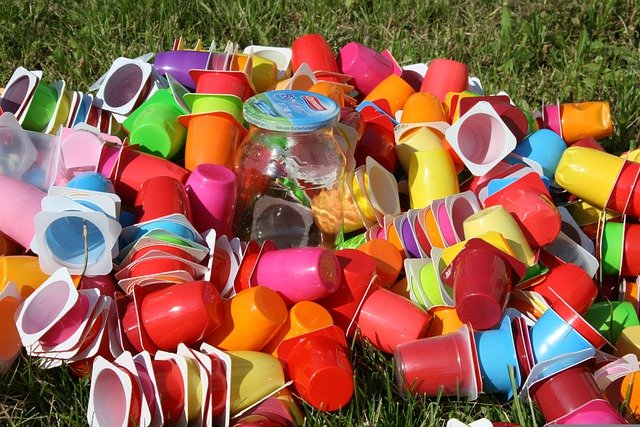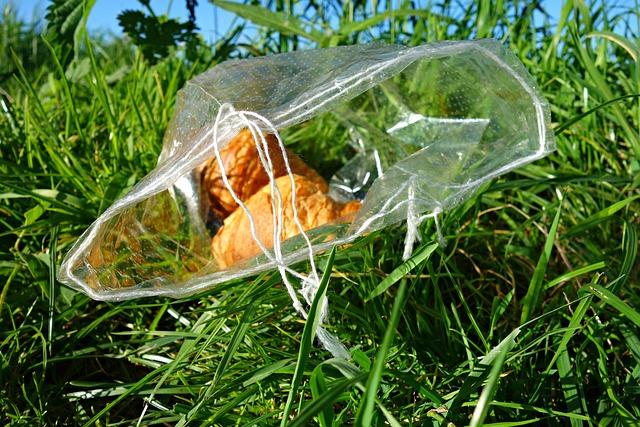Important – Waste Management
It is important to manage waste properly because of the implications of carbon emissions. In addition, improper waste management can lead to air pollution, water pollution, and land pollution. It can also cause health problems such as respiratory diseases, skin diseases, and gastrointestinal illnesses. So, how to be less wasteful?
Reducing family waste can have a big impact on the environment. There are many ways to reduce family waste, such as recycling and reducing consumption. Recycling is one of the most effective ways to reduce family waste. It involves sorting out recyclable materials from other waste materials and sending them to be recycled. This process reduces the waste that goes to landfill sites or incinerators.

Surprisingly, so many families don’t recycle at home. According to a study by the National Recycling Coalition, only about one-third of all recyclable materials are recycled. The other two-thirds end up in landfill sites or are incinerated. I will discuss how to be less wasteful in this article.
How To Be Less Wasteful?
Being less wasteful is all about reducing, reusing, and recycling. The best way to reduce waste is to prevent it from being created in the first place. You can do this by buying less stuff, choosing products with less packaging, and avoiding disposable products.
Another way to reduce waste is to reuse items instead of throwing them away. For example, you can reuse plastic bags, bottles, and containers. You can donate unwanted items to charity shops or give them to friends and family. Recycling is another way to reduce waste. Recycling involves sorting out recyclable materials from other waste materials and sending them to be recycled. Here are a few tips about how to be less wasteful.
Avoid Using Paper Towels
How many times have you reached for a paper towel to clean up a small spill, only to throw it away seconds later? It may not seem like a big deal at the moment, but switching to reusable alternatives can significantly reduce waste. Reusable cloth towels or napkins can easily be washed and used repeatedly.
Another option is a stack of durable microfiber cleaning cloths, which can be used for wiping or scrubbing tasks and washed regularly in the washing machine. And don’t forget about good old-fashioned handkerchiefs – they may not be as glamorous as disposable paper products, but they’re just as effective and can last for years before needing to be replaced.
So next time you reach for that roll of paper towels, think about how easy it could be to switch to reusable alternatives and help cut down on wasteful consumption.
Give Up Plastic Bags
It’s no secret that plastic bags and baggies are extremely wasteful – they’re used for minutes but take hundreds of years to decompose. But the good news is that embracing a plastic-free lifestyle is easy! Keep reusable cloth bags in your car or purse for grocery shopping, invest in stainless steel or glass containers for packing leftovers, and use beeswax or silicone covers as an eco-friendly alternative to plastic wrap.
Regarding producing, skip the packaging or opt for paper bags instead. And don’t forget the little things – bring a reusable water bottle and coffee mug with you wherever you go, and say no to straws at restaurants. Making small changes like these can make a big impact on reducing unnecessary waste.
Collect Your Food Scraps
Have you ever thrown away a moldy apple or a wilted vegetable without a second thought? It might seem like just one small act, but throwing out food scraps can significantly impact the environment. Not only does it add to landfills, creating emissions and contributing to climate change, but it also means that we are producing unnecessary waste. So what can we do about it? One solution is composting.
By separating our food scraps and organic materials and allowing them to decompose naturally, we can create nutrient-rich soil for our gardens and reduce methane emissions from landfills. Another option is to simply be more mindful of how much food we buy and consume, reducing the amount that ends up in the trash in the first place. As individuals, every small effort adds up – let’s all work together to be less wasteful and positively impact our planet.
Store Foods Properly
One easy way to cut down on food waste is to freeze leftovers before they have a chance to go bad. This allows you to enjoy them later rather than throwing them out. Before freezing leftovers, divide them into individual servings or smaller portions. This will make them easier to thaw and eat in the future.
And don’t forget about your frozen goodies! Keep a running list on your fridge of what’s in your freezer, so you remember to eat everything instead of letting it sit there indefinitely. Give new life to leftovers by freezing them and enjoying them at a later time instead of letting them go to waste. Don’t let those delicious meals go uneaten!

Use Reusable Water Bottles
Plastic pollution is a growing issue, with disposable bottles making up a large proportion of the waste clogging our landfills and oceans. We can easily combat this problem by using reusable water bottles. Not only are they better for the environment, but they can also save us money in the long run.
They come in various materials, from stainless steel to glass to BPA-free plastic, and can be easily refilled at home or water fountains on the go. Plus, many reusable bottles have convenient features like built-in filters or insulated walls that keep drinks cold for hours. So next time you reach for that disposable bottle, think about investing in a reusable one instead – it’s a small change that can impact our planet’s future.
Wrapping Up
In conclusion, being less wasteful is good for the environment and can help you save money. There are many easy ways to reduce your waste, from composting food scraps to using reusable water bottles. Every little bit helps, so make a conscious effort to be more mindful of your waste and its impact on the planet. Do your part to help make our world a cleaner and greener place! Thank you for reading!
